Local developers come together to address lack of housing & commercial inventory options
2022 Lost Spaces Conference panel with Council member Tiffany Thomas, Broker Jason Hyman, Advocates Zoe Middleton & Lloyd Ford, and Houston Land Bank CEO Christa Stoneham
Tackle development hurdles with innovative, practical solutions
As the Houston real estate market begins to rebalance after several years of growth, we are starting to uncover new and old hurdles to purchasing property. Home prices have begun to flatline as inventory increases, but ownership still evades a large portion of the Houston population. The same goes for commercial property which is feeling the effects from modified work arrangements, a demand for smaller spaces, and higher than normal lending rates.
As we look at solutions to maintain a healthy stock of options that cater to a variety of income classes and uses, several issues must be addressed. Antiquated policy & programming, hurdles to innovative design, and barriers to local ownership are atop of the list. These concerns should drive the discussion of sustainable communities. A discussion our firm is heavily involved in to ensure the long-term growth of our industry as well as the neighborhoods we serve.
Create access to a variety of capital
Policies that protect the most vulnerable neighborhoods from predatory practices are almost nonexistent and lending guidelines don’t always support the type of development needed for neighborhoods to thrive. In the end we end up with a limited variety of housing supply and commercial structures that are far outside the human scale. Land banking, community land trusts, and nonprofit programming that struggle from being underfunded due to philanthropic dollars being diverted to causes that are supposed to support them as opposed to being driven directly to them.
Ultimately, the money gets caught in a vacuum of red tape and bureaucracy where no one neighborhood is effectively impacted. While there is a lot that needs to be changed at the federal and state level, there is much that can be done on the ground locally to begin changing the narrative around housing & commercial development.
Revisit outdated development policies
Missing middle housing designs are by far the best design approaches to leverage for more affordable, human scale options to live, work, and play, yet city development guidelines and building codes have not caught up. Still again, neighborhoods end up with a limited variety of options that usually fit one end of the spectrum of buyers as developers design for short term profit instead of long-term function & use.
Where there exists the occasional developer willing to assume the risk associated with designing for long term function, the same does not go for the resources and support available to them in order to make their sacrifice profitable. Thus, the market is incentivized towards poor practices.
Provide protections for vulnerable communities
Meanwhile, many local property owners are solicited to sell their properties instead of developing them into high performing assets or at least selling them to local developers that may have more stock in the success of the neighborhoods they build within. As existing residents vacate the area for offers on their property that far surpass their initial investment, so does to the culture. The architecture and history all begin to be replaced by murals and art that pay homage to what was, prompting others to pay a premium for this encapsulated cultural experience.
The result ends up being housing and commercial options that are out of reach and bumps in property tax that many existing residents can't afford to pursue or upkeep. Without a coordinated effort to work together locally and responsibly, institutional investors and profit driven developers end up being the only winners.
Incentivize models for local ownership & investment
In order to build sustainable communities and provide a programmatic outlet to solutions that everyone can participate in, The 3rd Ward Real Estate Council, a 501c3 non profit development organization has begun building the framework for locally driven development practices. By providing educational resources, access to capital, and responsible development models the organization is aiming to produce 50 housing and commercial development models, $10,000,000 in revolving funds, and provide 50,000 educational hours to those that want to (re)build communities responsibly.
Their annual Lost Spaces conference has become a hallmark event to bring their mission and goals to life with individuals and organizations from around the city and country to share best practices, resources, and establish strategic relationships. This year, April 28th through April 30th marks the weekend of the annual Lost Spaces conference, where implementation is the theme. An agenda of networking events, classes & workshops, and live case studies have been organized to empower emerging developers on the importance of local ownership. You can find more information and registration information on the conference webpage.

